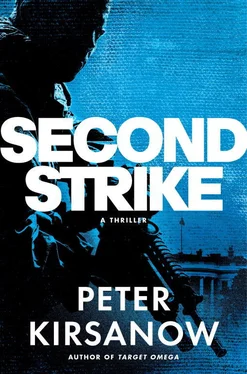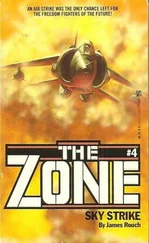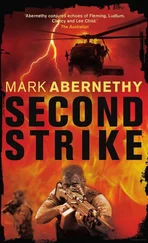Marshall nodded. “Serious as a heart attack. But that Russian was running circles around our law enforcement and intelligence guys last time. If there were several unsuccessful attempts on Garin’s life, it doesn’t sound like that Russian.”
“True. But we are talking about Garin.”
Marshall chuckled. “We’re fortunate we still produce men like that, Jim, though he may be one of a kind.”
“Ms. Perry believes the combination of these things indicates some type of Russian strike against US interests is imminent or under way.”
“Imminent or under way? Based on what, precisely?”
“Everything we’ve just discussed plus our experience from the EMP affair. That unfolded at light speed. We stopped it only hours from execution.”
“What do you propose we do this time?”
“I propose we devote more intelligence assets and resources to this matter to determine what’s going on.”
“And Ms. Perry?”
“She believes, Mr. President, that time’s of the essence. She proposes we reconstitute Omega to deal with any potential threat that may emerge.”
“Reconstituting Omega—selection, training—would take as much as a year. That doesn’t make much sense if time’s of the essence.”
“I take it Garin has in mind a provisional Omega consisting of former tier-one operators.”
“Even if I thought that was a good idea, a certain faction of the Senate—not to mention the press—would be up in arms if I moved to re-create Omega like that. It would be labeled as a cadre of hired assassins, mercenaries.”
“I don’t disagree.”
Marshall drummed his fingers on his desk. “Before we take any action, I’d like to speak to Garin directly. Then I want to discuss this with the NSC.”
“Wise decision.”
Marshall stopped drumming his fingers, turned, and gazed at the Rose Garden.
“Russians.”
NORTHERN VIRGINIA,
AUGUST 17, 10:22 A.M. EDT
The Butcher slowly arranged his instruments of torture on the table before the subject, believing from long experience that the revelation of each was torture in and of itself, the subject’s mind conjuring horrors nearly as awful as the physical pain to come. The Butcher was a master, taking great pride in his craft. He had done this scores of times before over nearly two dozen years. He knew the human body as well as any surgeon or physiologist. He had tweaked and adjusted his repertoire to inspire maximum dread, unbearable agony. And an irresistible compulsion on the part of the subject to cooperate.
The instruments varied slightly from subject to subject. The Butcher had an instinct regarding such things, refined by experience. Judging from the subject’s appearance and what the Butcher had been told about the man, the Butcher suspected he might require more than one session, each fairly protracted. But he was confident he’d extract any information, however useless it might be, before the event was scheduled to occur.
The subject was fit and densely muscled, thick cords of veins bulging in his neck and arms. Pounding and pulverizing implements such as mallets, vises, and hammers would be less effective than piercing or slicing instruments. Accordingly, the Butcher selected a nine-inch-long stainless steel needle and placed it on the table. Its slow insertion in the ear canal or eyeball could, obviously, inflict horrible pain, the shock of which often resulted in unconsciousness—counterproductive to the objective. Consequently, the Butcher employed the needle as a primer. He would prick the ear canal or eyelid enough to elicit a shriek and a pearl of blood, but immediately withdraw it, the promise of worse pain to come.
To the right of the needle, the Butcher placed a finely honed, slightly parabolic six-inch razor with which he would peel off the subject’s epidermis, an endeavor that required skill as well as patience.
His mentor had insisted that for maximum pain the razor should first be applied to the scalp at the front hairline, scaling the skin backward over the skull. But the Butcher found this to cause too much blood to stream into the subject’s eyes, producing a disorientation that impeded eliciting useful information. Instead, the Butcher preferred slicing across the back of the subject’s hand at the knuckles and slowly pulling the skin toward the elbow, pausing every few centimeters to use the third object he’d placed on the table—a simple propane torch.
The appearance of the torch almost invariably generated panic in his subject, but its actual purpose was to cauterize the area from which the skin was pulled back: slice, pull, pause, torch; slice, pull, pause, torch. Effective, even if the acrid smell of seared flesh, blood, and bone sometimes made him wretch.
The Butcher would need no other instruments. He sat a few feet away from and opposite the subject, whose ankles, waist, and wrists were strapped respectively to the legs, back, and arms of a high-backed metal chair. He observed the subject almost clinically for a few moments, somewhat fascinated by his taciturn expression. Probably catatonic from fear, thought the Butcher. Unsurprising.
He wondered how long the subject would live.
—
The smile had been fleeting, so much so that Garin couldn’t be sure it had actually been there.
The smile—if it had been there—had been replaced by an analytical expression, that of a predator assessing the vulnerabilities of its prey.
Garin conducted his own analysis: He was in trouble. His hands and feet were bound to a heavy iron chair by multiple swaths of heavy-grade duct tape. His torso was bound upright against the back of the chair. Save for the implements the grotesque-looking man had just arrayed on the metal table, the room was empty of anything Garin could possibly use as a weapon, and there was no possibility of reaching such implements. The room itself was approximately eight feet by twelve, consisting of cinder-block walls and poured concrete. The door was metal and looked several inches thick. The concrete floor was covered with a sheet of plastic.
The fog that had enshrouded his brain had lifted quickly, but he still had a vague, unsettled feeling throughout much of his body. The last thing he could remember was lying on the ground with his arm around Bulkvadze’s neck, the giant’s weight suddenly becoming inert. Garin had no recollection of confronting or even seeing the grotesque-looking man, and he was sure if he had he wouldn’t have forgotten him.
“You killed Bulkvadze,” the Butcher informed him in a voice that surprised Garin. It was urbane and cultured, with perfect diction. Incongruous, coming from a face that brutal. It was tinged with a Russian accent so slight that only someone who heard the language regularly would catch it. “Unexpected given the substantial size disparity and his initial tactical advantage. Normally, I would have given him four-to-one odds of defeating you within ten seconds.”
Garin’s expression remained taciturn, inscrutable.
“You should be dead, not Bulkvadze.”
“Speed kills,” Garin said, his voice low and quiet.
“That has been my experience as well. But there are times when death can come slowly and deliberately. This shall be one of those occasions.”
Garin’s face remained inscrutable.
“I suspect you think that my purpose is to pry information from you, to employ the judicious application of pain to determine what you and your government know about what we are doing and how you plan to deal with it.” The Butcher picked up the needle from the table. “That is a bit theatrical. Although I will secure information from you, my charge is simply to kill you if Bulkvadze failed. How I do so is up to me.”
Читать дальше












